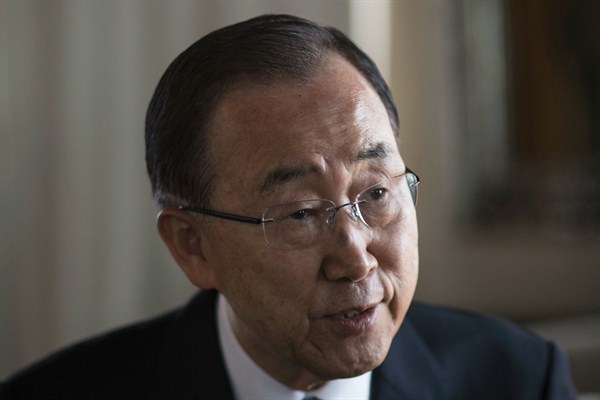This may be one of the last times I write about Ban Ki-moon, a thought that makes me unexpectedly melancholic.
The United Nations secretary-general will hand over his duties to Antonio Guterres at the end of the month, after 10 years in office. Over that time, I estimate that I have written about 50,000 to 60,000 words about Ban’s performance, in addition to more general pieces on U.N. diplomacy. Quite a few of those words have been unkind: I have frequently criticized Ban for being too cautious, too hidebound by protocol and too slow to grasp many of the U.N.’s operational problems.
I once called him a “chump” and a “poodle.” More recently, in line with other commentators, I have said nicer things about his stalwart and successful efforts to secure the ratification of the Paris climate change treaty. His decision this month to offer a public apology, albeit a late and incomplete one, for U.N. peacekeepers’ role in causing and mismanaging the outbreak of cholera in Haiti showed basic decency.

